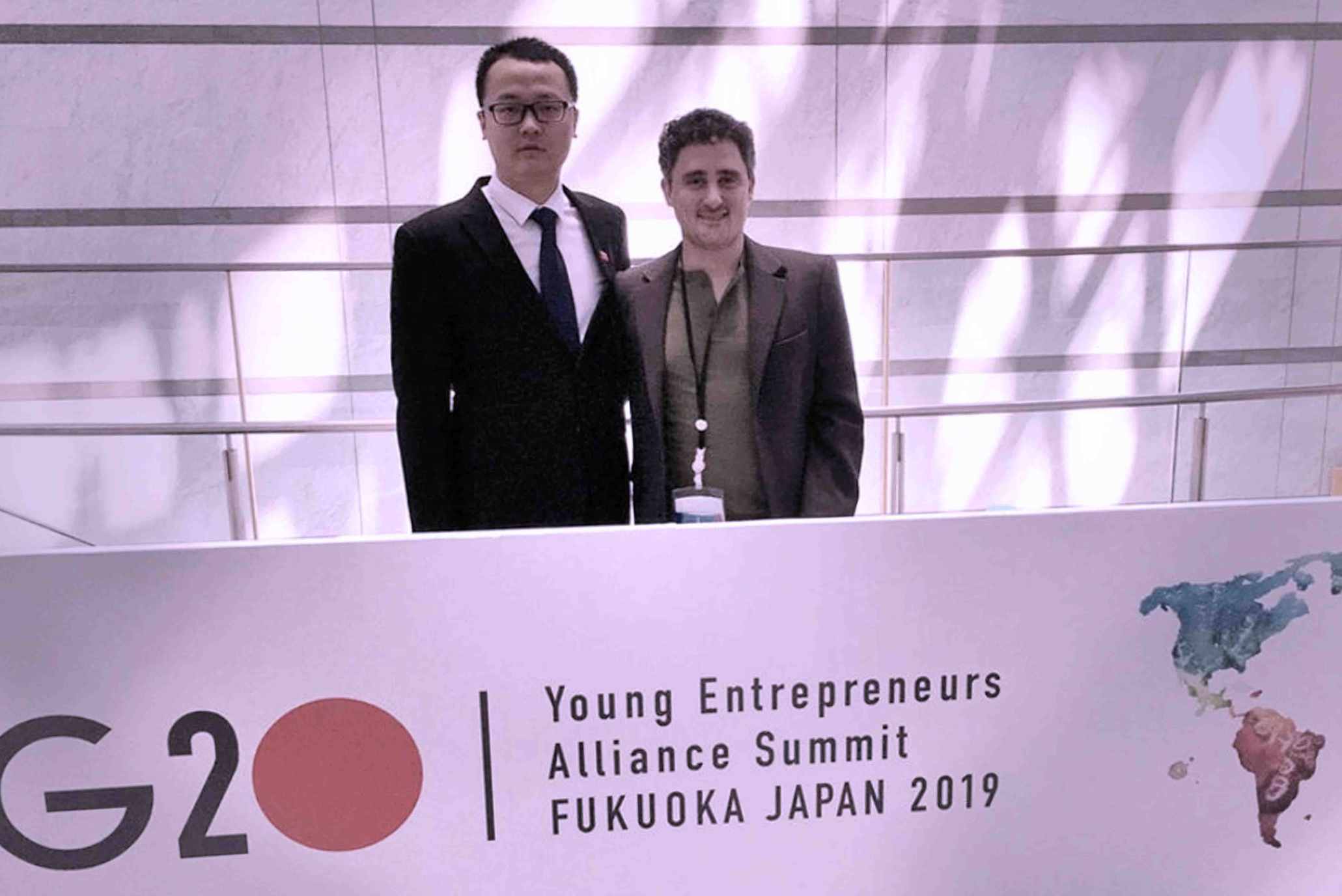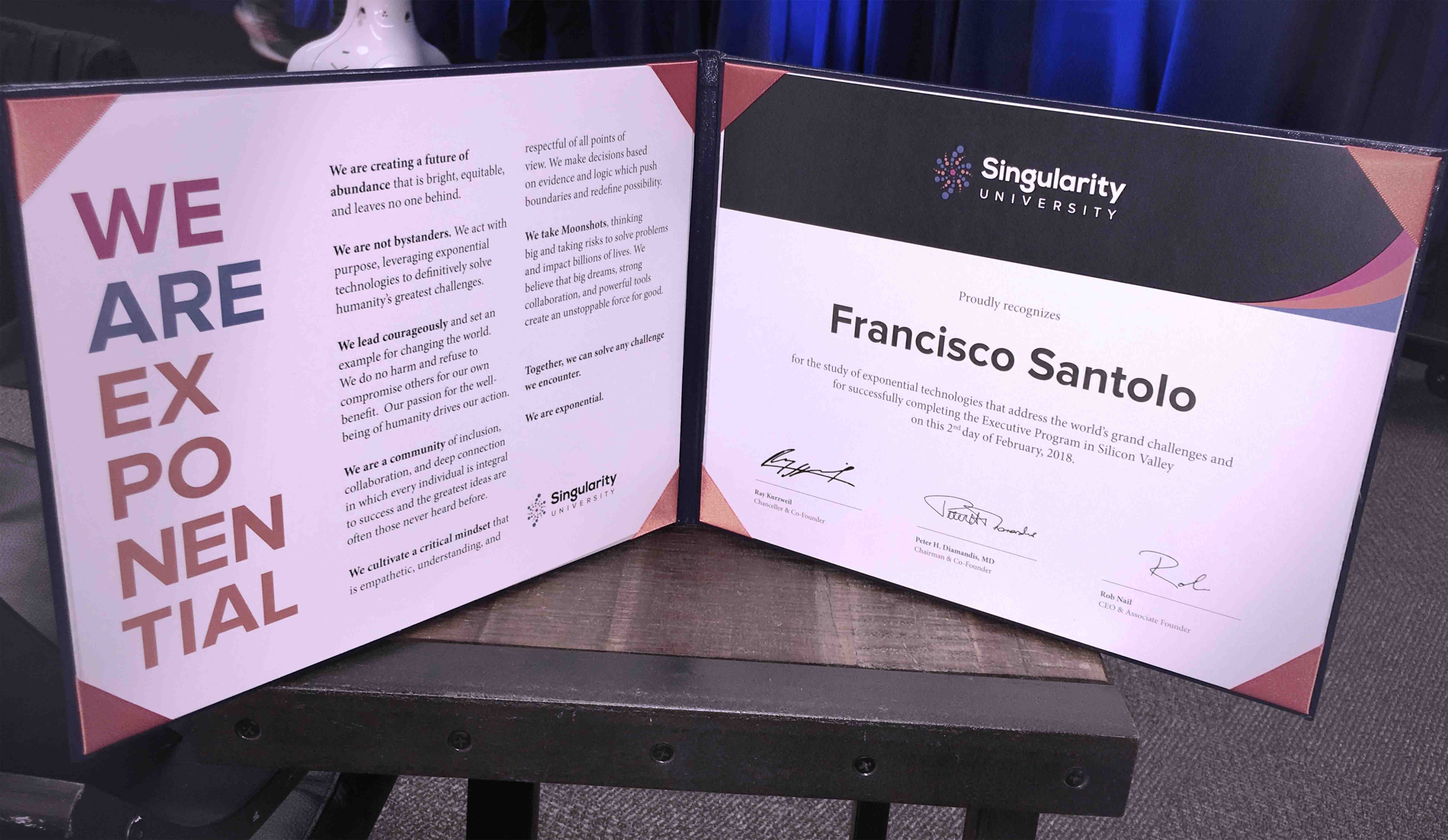

Michael Goldberg, Case Western Reserve University Professor, led a study trip to Argentina and in order to learn more about the entrepreneurial ecosystem his MBA students visited Scalabl. They were pleasantly surprised to learn that Francisco was using Steve Blank’s approach to support startups. One group of students worked with BrasUp, a Scalabl company that produces and sells a fire starter kit for the consumers grilling market.

By Michael Goldberg
Among the classes that I teach at the Weatherhead School of Management at Case Western Reserve University, one of my favorites is our International Institute, which includes a week long trip during our spring break. I’ve led groups of students to Morocco, Hungary, Chile, and, most recently, Argentina.
We always hit a few interesting tourist spots on these trips—in Argentina I indulged in my passion for sports and took some students to see the Pope’s favorite soccer team, San Lorenzo, play against Brazil’s Paranaense in the Copa Libertadores in Buenos Aires. Paranaense won the match (sorry Pope Francis), and we had a great time hanging out with what some may call one of the epicenters of soccer-crazed fans, but that was a very small part of what we accomplished that week.
In order to learn more about the entrepreneurial ecosystem in Argentina, we met with local entrepreneurs, accelerators, and talked to government officials about how they help launch successful startup companies. We also sampled the local food and wine (of course), but mainly we learned about the local culture through the unique lens of exploring the business community.
Prior to flying to Argentina, I connected with Scalabl (pronounced “scale-ah-ble”), an accelerator in Buenos Aires that develops startup companies. Francisco Santolo, the founder and managing director of Scalabl, helped me pair small groups of Weatherhead students with nine startups in their accelerator. In the weeks leading up to the trip, my Weatherhead student teams spoke with their entrepreneurs by Skype and communicated by email. The students were responsible for heading up a consulting project for these entrepreneurs—they would identify a business model challenge and provide marketing, financial, or operational assistance to try and help solve the problem. We would meet the entrepreneurs in Buenos Aires, and the students would have a month after the course ended to produce a final video and paper with their recommendations.
On our second day in Buenos Aires, after breakfast in our hotel, we walked through the historic Recoleta neighborhood of Buenos Aires to reach Scalabl. Scalabl’s office is in an apartment building, and the elevator could only fit five people at a time, so we took the back stairs to the fifth floor. About forty students and entrepreneurs, huffing and out of breath, crammed into Scalabl’s conference room (the former living room of the apartment).
Francisco explained his vision for setting up Scalabl and his philosophy on supporting start-ups. The students and I were pleasantly surprised to learn that he uses Steve Blank’s approach to supporting start ups—that’s what I teach in my class, so the methodology was familiar to all. The key philosophy to Blank’s lean startup approach is that entrepreneurs need to get out of the building to test their business model hypotheses with potential customers or partners.
After our kick off meeting, students and entrepreneurs fanned out in the neighborhood to coffee shops and restaurants where they spent several hours rolling up their sleeves, talking through their projects, asking questions and learning about the businesses.
One group of my students worked with BrasUp, an Argentinian company that produces and sells a fire starter kit for the consumer grilling market. The kit is simple to use and conveniently packaged in a box with easy instructions printed on the outside. Grilling and eating meat is a national pastime in Argentina—parillas sell meat on nearly every street, and Argentine steak is world famous. BrasUp has had some initial success selling their product in Argentina, and they wanted the Weatherhead students to help them figure out how to begin selling their product internationally.
Enter Alec Janda, Giancarlo DiFranco, and Michelle Miller, three dynamic part-time Weatherhead MBAs with full time jobs in Cleveland who were assigned to work with BrasUp. Alec and Giancarlo work together at Enpac, a Cleveland company that produces and sells products to help protect the environment from hazardous chemicals. Their work experience brought manufacturing and marketing expertise to the project. Michelle is a marketing manager at Seaman Corporation, and her parents own BioBlocks, a US company that produces and sells compressed wood blocks that are burned for home heating and commercial cooking. What a coincidence! Michelle quickly realized she would be able to offer particularly relevant guidance to BrasUp because she had some familiarity with the market through her family’s business.
Michelle, Alec, and Giancarlo developed a US expansion plan for BrasUp which included an idea for a similar product that was specific for the US market. They presented BrasUp with a whimsical video and final report containing their recommendations for market opportunities and product sourcing.
“The work done by the students provided a solid starting point to take BrasUp to the US,” commended Francisco Santolo, founder of Scalabl. “It would be great to continue this work with them, and maybe turn it into a reality.”
Planning these trips and connecting the students and to international startup companies takes a lot of work and can be challenging to structure. But so far, the results have been worthwhile. The students have gained valuable experience outside the classroom, and they provided their entrepreneurs with research, plans, and innovative ideas to help solve problems. The students saw in a real world setting how business accelerators, which now exist all over the world, can successfully support entrepreneurs.
Note: If you’re interested in learning more about the role accelerators play in supporting entrepreneurs, I encourage you to watch the video I produced on this topic in my free Case Western Reserve University massive open online course (MOOC), Beyond Silicon Valley.







